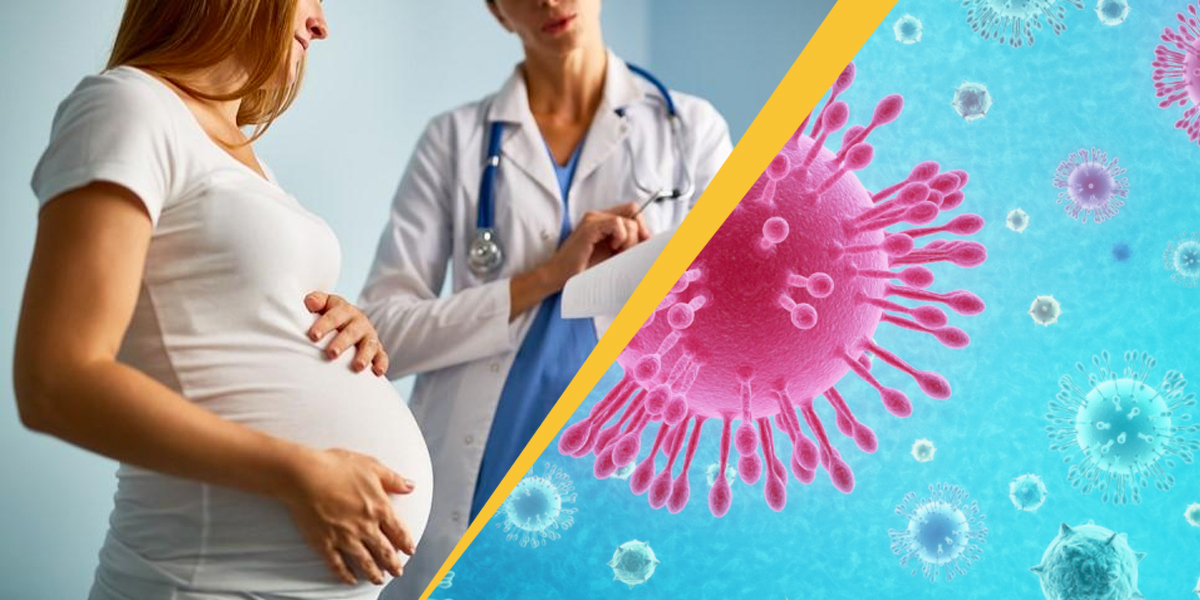Hello, there!
We know that you’re expecting, and isn’t that exciting. Amidst the newfound maternal excitement and celebration, there is a corner of your heart that is nervous and anxious, especially when the world is battling a pandemic, like never before. The pandemic is a result of novel coronavirus (SARS-COV-2).
It is a new strain of coronavirus causing COVID-19, which spreads from one person to another, majorly through cough/sneeze droplets (respiratory) and close contact. Having wrecked global havoc, the said virus is a cause of concern, boggling all the expecting mothers. Well, there is no room for panic, for we, at Healing Hospital, Chandigarh, promise to answer all your questions and put your worries to rest.
1. Is a pregnant woman more prone to the infection?
Pregnant women frequently undergo changes in their immune system, which places their body at a higher risk of severe illness due to respiratory infections. So much so, that the United Kingdom declared pregnant women a vulnerable patient population.
However, there is no evidence and available research to indicate that a pregnant woman is at a higher risk than the general population amidst the global COVID-19 pandemic.
2. What effect will coronavirus have on the baby, if the mother is diagnosed positive?
When the virus is passed from the infected mother to the fetus (the baby in the womb), it is known as vertical transmission. Although there is no evidence to the same, the possibility has not been completely ruled out. A case report analyzing 33 pregnant women infected with SARS – CoV-2 observed that three of their newborns were infected with the virus showing clinical signs of confirmation of COVID-19 infection.
However, it is not clear whether they were infected while in the womb or if the infection was acquired after birth. Therefore, the transmission of the infection from the mother to the child during pregnancy or delivery has been reported as an unlikely phenomenon. This also means that at present no specific tests are required to test the infection status of the fetus.
3. Is an infected pregnant woman at a higher risk of miscarriage and other complications?
There is no documented pregnant patient showing a higher risk of miscarriage or fetal malformations due to coronavirus infection. Thus, there is no proven link between coronavirus and miscarriage.
While there are reports suggesting that coronavirus-infected women have delivered preterm (or premature) babies, it is unclear if early birth is a result of the infection or usual complications.

4. Can an infected mother breastfeed her newborn?
As on this date, the virus has not been found in samples of breastmilk or amniotic fluid. On the contrary, breast milk provides protection against many illnesses and is the best source of nutrition for infants.
Although women infected with Covid-19 can breastfeed, it is essential to observe respiratory hygiene by wearing a mask during feeding, and properly washing hands before and after touching the baby. So, make sure that your maternity bag has masks, sanitizers, and disinfectants.
5. What is the ideal childbirth choice for an infected woman?
The mode of birth is an individual choice, which should be based on the pregnant woman’s preference followed by obstetric instructions. The infection or possibility thereof shall not be a determinant in choosing the method of delivery. Caesarean sections should be performed when medically justified.
6. Is it advisable for an uninfected pregnant woman to have regular prenatal visits to the hospital? Should she be worried about delivering in the hospital, in the best interest of the child and herself?
Undoubtedly, prenatal visits are imperative to ensure maternal and fetal health. Your concerns as to these visits to your obstetrician are genuine in view of the existing pandemic. Therefore, it is advised that you should address these concerns by consulting your well-equipped obstetric team.
As we thrive to provide the best for you and your baby, we have eliminated the risk of infection by ensuring a COVID-free space for all the expecting mothers and their newborns. Precautions are being taken to minimize exposure risks. We have decided to extend our services of teleconsultation, and we are happy to assist you through this medium. As we struggle with this pandemic, we want you to choose the best for yourself and your baby.
To book your teleconsultation, and know more about our affordable and best maternity and child-care services, visit: https://healinghospital.co.in/mother-and-child-care-hospital-in-chandigarh/

7. What should be done to prevent Covid-19?
Maintenance of personal hygiene and cleanliness of the immediate surroundings is the key. Clean your hands at frequent intervals with soap and water, or an alcohol-based hand rub (sanitizer). Avoid touching your eyes, nose, or mouth.
In such times, social distancing shall be practiced. Maintain at least 1-meter distance between yourself and anyone who is coughing or sneezing. Droplets spread the virus, and thus respiratory hygiene shall be maintained by covering your mouth and nose with a tissue or your elbow while coughing or sneezing. Seek medical attention, if the cough persists along with fever and difficulty in breathing.
Medical Disclaimer: Dear Reader, the contents of the article are for informational purposes only and are not intended as medical advice, or as a substitute for the medical advice of the physician.
Have any questions?
[contact-form-7 id=”3698″ title=”blog”]
























